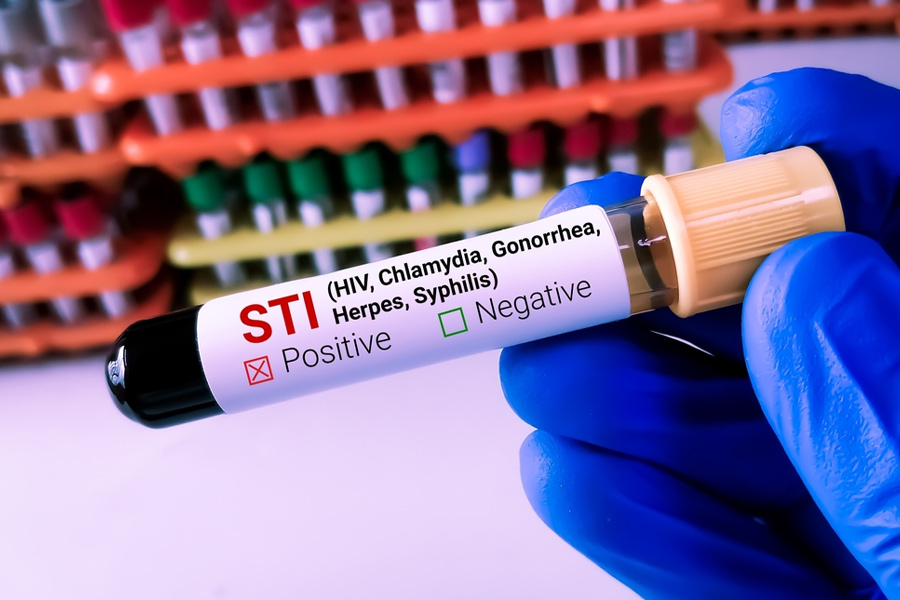
Sexually Transmitted Infections (STIs) continue to be a significant global health challenge, affecting individuals across all demographics. These infections, caused by bacteria, viruses, or parasites, are primarily transmitted through sexual contact. STIs can spread via blood, semen, vaginal fluids, and other bodily fluids. Due to the lack of comprehensive sex education in India, raising awareness about STIs is crucial.
To shed light on this topic and discuss ways to practise safe sex to prevent infections, we spoke with Dr Manisha Singh, Senior Consultant - Gynaecologist and Subspecialist in Reproductive Medicine & Surgery, Fortis Hospital, Bannerghatta Road, Bangalore.
Sexually Transmitted Diseases (STDs) often present a wide range of symptoms, or, in some cases, none at all. This lack of symptoms can lead to infections going unnoticed until complications arise or a partner is diagnosed.
The World Health Organization (WHO) reports that over one million curable STIs are acquired daily worldwide among individuals aged 15-49. A significant percentage of these infections are asymptomatic, showing no visible symptoms.

Dr Singh told us, “Couples should familiarise themselves with common STIs such as Human Papillomavirus (HPV), Chlamydia, Gonorrhea, Syphilis, and Herpes Simplex Virus (HSV).” These infections can be spread through vaginal, anal, or oral sex, and some can also be transmitted from mother to child during pregnancy or childbirth. Understanding these STIs, their symptoms, and the risks they pose is essential for maintaining sexual health.
Possible symptoms of STIs include:
To minimise the risk of contracting STIs during sexual activity, couples can adopt safe sex practices. These include consistently and correctly using condoms, reducing the number of sexual partners, and ensuring vaccinations for HPV and Hepatitis B are up to date. Dr Singh said, “Open communication about sexual history, STI status, and any related concerns is essential in fostering trust and awareness. Regular STI screenings also play a vital role in maintaining overall sexual health and preventing the spread of infections.”
Don't Miss: 5 Reasons Women Fake Orgasms More Than Men, Expert Suggests Tips to Fix It
Couples should consider regular STI testing, even if they don’t experience any symptoms. The frequency of testing varies based on factors like the number of sexual partners, types of sexual activities, and any prior STI diagnoses. Dr Singh suggested, “As a general recommendation, sexually active individuals should undergo testing at least once a year, while those with multiple partners or who engage in high-risk behaviours may need to be tested every 3-6 months.”

Oral sex and other forms of intimacy can also transmit STIs. Dr Singh says, “Infections such as Chlamydia, Gonorrhea, and Syphilis can be spread through oral sex, while HSV can be transmitted through skin-to-skin contact, including kissing and intimate touching.”
Dr Singh suggests, that to reduce the risk of transmission, couples should use protective barriers like dental dams or condoms during oral sex. Open communication about STI status and addressing any concerns is also essential for maintaining sexual health and trust in relationships.
If one partner is diagnosed with a STI, immediate steps must be taken to prevent transmission to the other partner. This includes notifying all recent sexual partners, refraining from sexual activity until the treatment is complete, and adhering to the prescribed treatment plan. Couples should also have an open discussion about future safe sex practices and agree on a plan moving forward. The partner who is not diagnosed should get tested for the STI and begin treatment if necessary. Maintaining open communication, offering mutual support, and committing to safe sex practices are key to navigating the situation together.
Don't Miss: Why Should You Have Sex Regularly: Gynaecologist Shares 5 Health Benefits
Getting an STI is not the end of the world, and it’s important to approach the situation with maturity and understanding. If you are diagnosed with an STI, have an open and honest conversation with your partner about it, ensuring there’s no shame involved.
Seek guidance from a qualified doctor who can provide the right advice and treatment options. Remember, having sex is a normal part of life, but it’s crucial to do so safely to protect yourself and your partner. With the right approach, an STI can be managed and treated, so don’t hesitate to seek help and support.
Keep reading Herzindagi for more such stories.
Credits: Freepik
Also watch this video
Herzindagi video
Our aim is to provide accurate, safe and expert verified information through our articles and social media handles. The remedies, advice and tips mentioned here are for general information only. Please consult your expert before trying any kind of health, beauty, life hacks or astrology related tips. For any feedback or complaint, contact us at [email protected].